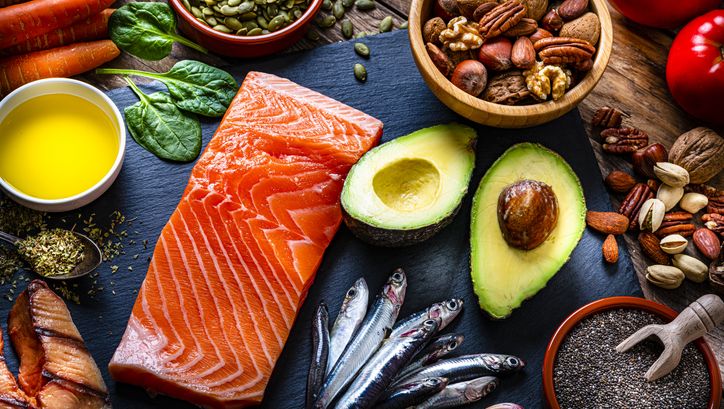IN THE WORLD of nutrition, there’s a rising trend toward embracing culturally diverse and inclusive diets.
It’s not just about trying new flavors and exploring different cuisines. This movement is actually grounded in science. And that exact science suggests that consuming a wide range of nutrient-rich foods from various cultures can positively change your health.
One key reason behind the momentum of culturally diverse diets is their ability to improve your nutritional health. As a registered dietitian and author of Eating From Our Roots, Maya Feller says that “patterns of eating that are inclusive rather than restrictive tend to provide the eater with a greater biodiversity of nutrients.”
“Because when we obtain various nutrients from foods of all forms in multiple combinations, we are less likely to experience nutrient gaps,” Feller says.
This supports the idea that incorporating diverse foods enhances your overall nutrient intake and promotes better health outcomes.
Exploring foods from different cultures also helps combat nutrient deficiencies.
Traditional diets, such as those followed in Japan, the Mediterranean region, or the Caribbean, emphasize foods rich in essential nutrients. For example, the Japanese diet, high in fish and seaweed, provides omega-3 fatty acids and iodine, while Mediterranean and Caribbean diets offer an abundance of fruits, vegetables, whole grains, and healthy fats. Incorporating elements from these diverse cuisines widens your nutrient intake and reduces the risk of deficiencies.
A diverse diet is not only beneficial for macronutrients but also for micronutrients.
Consuming various foods enhances your intake of essential vitamins and minerals. Research has shown that incorporating elements from specific traditional diets, such as Mediterranean or Japanese diets, can positively affect health markers like cholesterol levels, blood pressure, and body weight.
And then there’s flavor.
Apart from the nutritional benefits, embracing culturally diverse diets brings the joy of discovering new tastes and exploring different cultural traditions. Food is not just fuel but also a source of pleasure and cultural exploration.
I mean, think about your most incredible food memories. Hopefully, they are tied to your lineage because that’s true in my life. By embracing diverse cultures’ flavors and culinary practices, we enrich our dining experiences and foster a greater appreciation for global cuisines.
In our vibrant world, where cultural diversity is celebrated, we have a fantastic opportunity to experience the benefits of diverse diets. It’s not just a trend but a pathway to optimal health.
By incorporating nutrient-rich foods from various cultures, we can nourish our bodies with a comprehensive array of essential nutrients while expanding our culinary horizons, which (let’s be honest) could solve many problems when we bring in the theme of acceptance, celebration, and understanding of all of our differences.
While further research is needed to fully understand these diets’ impact, the existing evidence suggests their immense potential for improving our overall well-being.
So, let’s embark on a journey of culinary exploration, savoring the flavors and traditions of different cultures. Let’s celebrate the power of culturally diverse diets so that we unlock the path to optimal health.

Dezi Abeyta, RDN, is a Men’s Health Nutrition Adviser, author of Lose Your Gut Guide, and founder of Foodtalk Nutrition LLC.



Comments are closed.